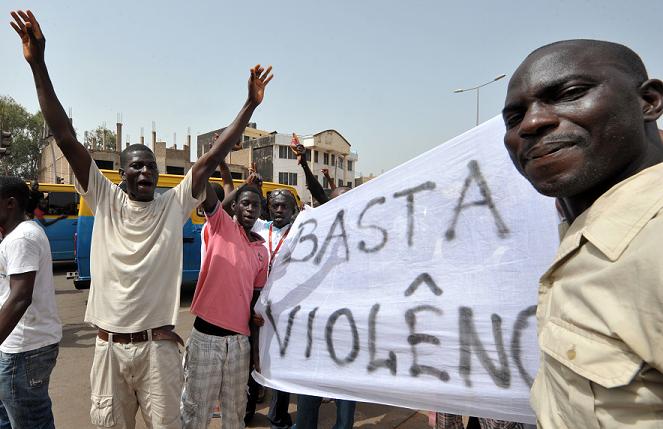Guinea-Bissau (GB) is a tiny little country on the western coast of Africa. It is a nation ravaged by grave health concerns, drug trafficking and an abundant access to weapons. It is racked by political instability. Elections originally scheduled for March 2008 were postponed. In August 2008, then-President Vieira dissolved Parliament and a new Prime Minister was appointed. Relatively peaceful elections occurred in mid-November, however, mutinous soldiers, apparently not happy with these governmental maneuvers, attempted to assassinate the former President in what is considered to be a coup attempt. This year started with a bang, literally, when General Tagme Ma Wai, army Chief of Staff, accused the President of attempting to assassinate him in January when his car was shot up. Making sure it was done right the next time, General Wai was killed when army headquarters were bombed on March 1st. And then because no deed of any kind goes unpunished in GB, President Vieira was promptly killed on March 2nd when his house was again attacked.
In case you think these were isolated incidents, or even new circumstances, let me hasten to disabuse you. GB is a highly volatile country, with a long history of coups and military rebellions. Since 2000, soldiers have killed three Chiefs of Staff of the Armed Forces, as well as other high ranking military officers. Those responsible for the killings were not brought to justice. Not surprising then, that human rights are less than prioritized in GB. On April 1st, making for a highly unfunny April Fool’s Day, Francisco José Fadul, a Court President and former Prime Minister of GB, ended up in intensive care after he was beaten by military personnel at his home in the early hours of the morning. This followed an assault by the military of well-known lawyer Pedro Infanda, who was arrested, severely beaten and tortured for four days by military officials before being transferred to police custody. He also spent time in intensive care. Coincidently, both men held press conferences during which the military was criticized shortly before they were attacked by military officials. Subsequently, members of the Human Rights League received threats after condemning the violent attacks.
President of the National Assembly, Raimundo Pereira, sworn in as interim President on March 2nd, is currently running the show in GB and new Presidential elections are scheduled for June 28th. Here’s hoping GB has free and fair elections with no more 48 hour tit-for-tat assassinations.

